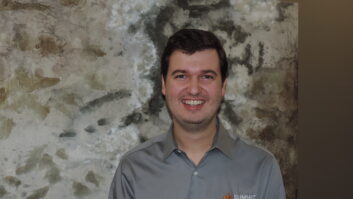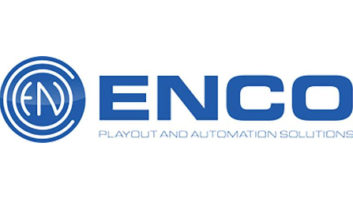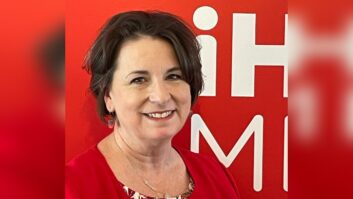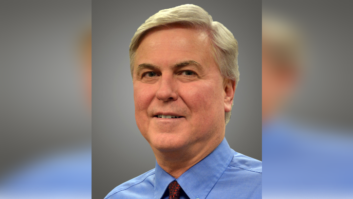(click thumbnail)Gaylord Opryland Resort credit: NCVB/Barry M. WinikerWhen Christian broadcasters meet at their big annual convention March 8–11 at the Gaylord Opryland Resort & Convention Center in Nashville, many of the topics for discussion — softness in revenues, competition from new media, proposed performance fees for play of copyrighted material — will seem familiar to any broadcaster.
But one key issue that has reared its head for the National Religious Broadcasters’ membership is unique to this market niche: the request by Sen. Chuck Grassley, R-Iowa, for financial records of six well-known evangelistic ministries.
“Senator Grassley launched an investigation of six of the largest television ministries because he said we’re 501(c)(3) non-profits,” said Craig Parshall, senior vice-president and general counsel for NRB, “and his sources indicate they may be abusing their non-profit status.
“We are very concerned about the implications for all non-profit broadcasters, radio, television, Web-based, all of them, because we feel this might be the beginning of an initiative for the federal government to step into all non-profit organizations, to look for roles for governance.”
‘Under attack’
Parshall will address Grassley’s investigation in the Monday afternoon educational session “Religious Liberties Under Attack.” He and other panelists also will discuss what they see as a threat to broadcasting posed by hate crime and Fairness Doctrine legislation.
Another piece of legislation that concerns NRB members is likely keeping broadcasters in general, and particularly radio, awake at night: a proposal that terrestrial broadcasters pay for copyright performance rights.
“We’ve looked at Christian broadcasting in general, and specifically within our organization, and we’ve found that of those that classify themselves as religious broadcasters, about 50 percent of those also classify themselves as predominately music stations,” said Parshall.
“So obviously a music performance fee would substantially cripple a lot of those, specifically the smaller ones, but also the larger ones. About 20 percent, by our count within our organization, would be paying full-scale commercial rates under whatever rates end up being set once this copyright law takes effect, if it’s passed.”
Though the hot-button issues Parshall mentioned have to do with law and regulation, NRB members face a plethora of business and market issues as well.
“We in radio are going through an incredible change, and the changes are going to be coming at us even more rapidly than most of us would like,” said Paul Virtz, senior vice president for media at Northwestern Media, which is owned by Northwestern College in Minnesota. Virtz supervised planning of radio sessions for this NRB convention.
“In radio we’re really moving away from the discussion or using the term ‘radio broadcast,’ and moving much more to delivery of audio content because Internet radio is already here, and we see it expanding significantly in the years ahead.
“So the question is: What do we need to do to begin to change the way we do things to account for all those changes that we see coming?”
New sources
One such change has been new sources of music for listeners who traditionally relied on radio.
With iTunes and the like able to provide exactly the music the audience desires, Virtz said radio has had to look at its entire packaging in an attempt to keep its listeners.
“[In] the early days of radio there was a strong emphasis on content, and then we’ve gone through this phase of consolidation, and everybody’s been jazzed by new technology, what we can do to cut costs, and a lot of emphasis on the business side, if you will, of radio.
“Interestingly, the pendulum is swinging back in the direction of content. And everybody’s saying, what will bring people to radio? There’s a great deal of discussion now about developing personalities. What can we do to develop radio personalities, which will help attract listeners. That’s the stuff that goes around the music.”
Among the sessions designed to address this is Monday afternoon’s “What Arbitron Can Tell You About Your Programming.” Presenters Alan Mason of EMF Broadcasting and Mason Meyer of Arbitron will consider which aspects of a station’s programming are working and which aren’t helping to reach its goals, where to look and tools that can help.
Virtz also pointed to the challenge non-commercial radio, including his own station, faces in evolving its fundraising model.
“We used to be able to do a three-day Share-a-thon, sort of a radio version of a telethon, and we were able to raise what we needed to stay on the air. That’s not happening now.”
NRB will discuss new strategies for fundraising in three Sunday afternoon sessions: “What Do I Say After ‘Hello?’ — Building Relationships with Advertisers, Underwriters & Major Donors,” Internet Management & Strategy for Executives” and “Inspiring Dedicated Donors.”
The challenges that Christian broadcasters face in delivering broadcasts to Muslim countries will be front and center in the Monday afternoon session “Christian Television in the Turbulent Middle East,” with panelists Terence Ascott, president of SAT 7, George El Khoury, president, Spirit Channel TV, and Kyle Young, international director of Inspiration Network International.
If You Go
(click thumbnail)
When: March 8–11
Where: Gaylord Opryland Resort & Convention Center, Nashville
How Much: $625 members, $750 non-members, discounts for spouses, international, early registration301 concepts
The NRB convention will feature several keynote speeches. A Saturday morning keynote will be given by Phil Vischer, the computer animator who developed “VeggieTales,” which has sold 50 million videos and is said to have revolutionized Christian filmmaking. He continues to pursue ways to integrate faith and storytelling through a new company, Jellyfish Labs.
Sunday evening will feature a keynote by Simon Swart, executive vice president and general manager of Fox Home Entertainment. He is credited with helping his company score record business in the new releases, catalog, DVD premiere and TV DVD categories.
Monday morning will feature a keynote with Mark Zoradi, president of Walt Disney Motion Pictures Group, and Randy Goodman, president of Disney’s Lyric Street Records.
For a number of years, NRB sponsored an Internet Boot Camp on the weekend ahead of the convention to bring Web beginners up to speed on use of the Net for their stations.
“As we planned for this year, we realized that the days of the Internet being kind of a scary thing are past us,” said Chad Nykamp, director of marketing at Salem Web Network and part of the convention program committee.
The Web is not a competitive medium, it’s a complimentary medium, he said.
“We passed on the 101-stage sessions, and we’re incorporating some of the more advanced concepts, 201, 301 concepts for people to take it to the next level and get more out of the Internet.”
Nykamp will be presenting the Monday morning session “Advanced E-mail Tactics,” where he’ll discuss using e-mail to grow the size of a station’s audience, increase engagement and drive traffic and revenue. The session will review findings of e-mail usability studies and look at tactics that Internet leaders are using to increase deliverability, open rates and click-through rates.
The growth of social networks like Facebook.com has led religious broadcasters to explore creating their own variations. In Saturday afternoon’s “Leveraging Future Internet Technologies Including Social Networking,” panelists will provide overviews of social networks and other Web technologies that can be used to increase ministry impact.
Convention organizers say the exhibit floor will have some 300 booths; exhibits will be open noon to 5 p.m. Sunday; 10 a.m. to 5 p.m. Monday and 10 a.m. to 4 p.m. Tuesday.
The exhibition floor will include a Tech Lab, where attendees can take in product demonstrations from equipment manufacturers, including side-by-side comparisons of certain gear.
On the Friday prior to the NRB convention, Women in Christian Media will hold a one-day conference, also at the convention center; and the NRB board meets.
Among other events of note, Saturday’s Opening Session includes remarks by Steve Brown of Key Life Network, a radio broadcaster, seminary professor and author, and Dr. Dennis Rainey of FamilyLife, plus music by Michael W. Smith.
A worship service takes place Sunday morning at 9:30. The NRB closing banquet features Dr. James Dobson, founder of “Focus on the Family,” and vocalist Larnelle Harris.














